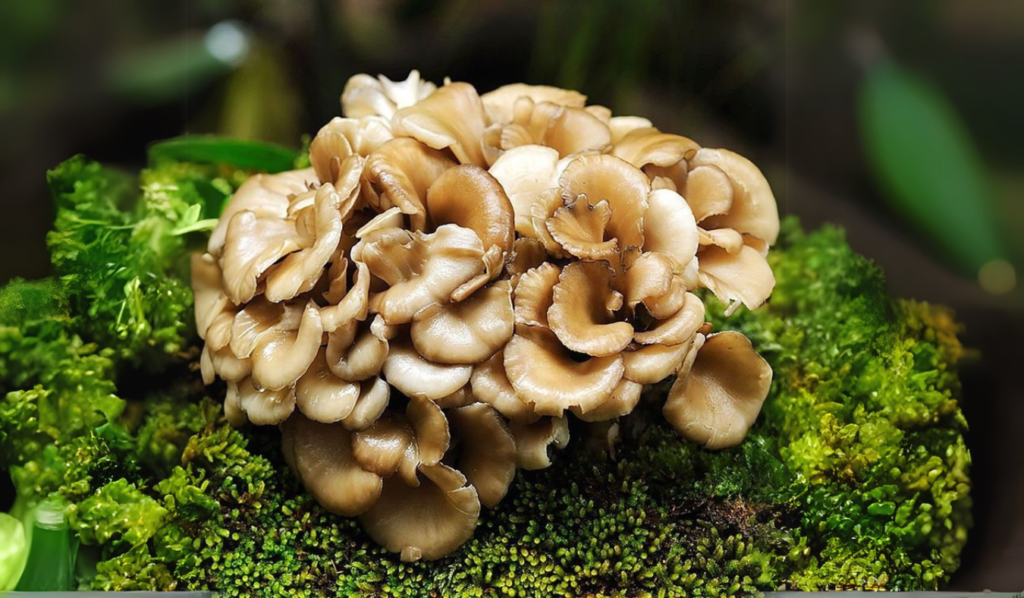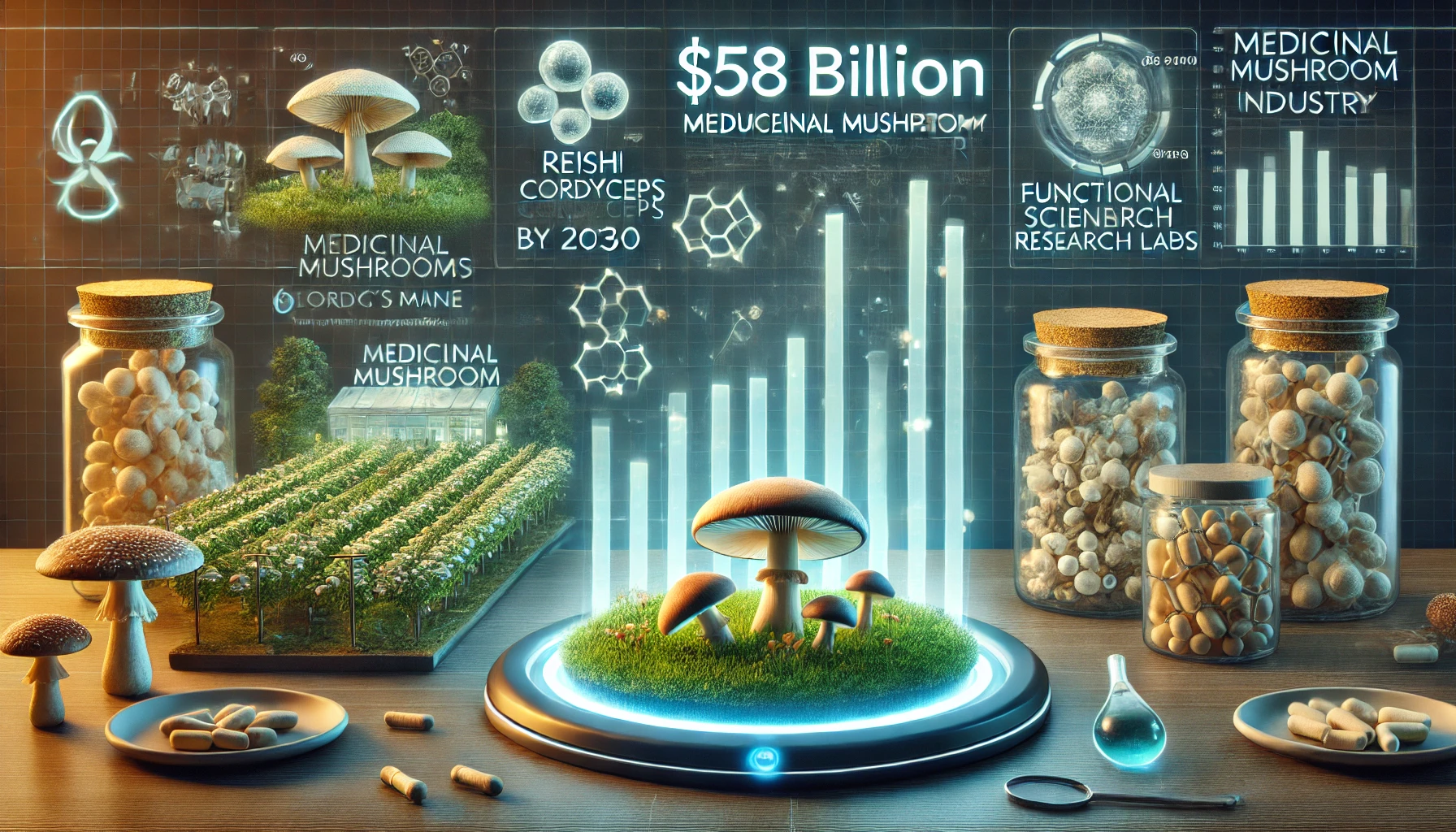Maitake mushroom (Grifola frondosa), often called the "Dancing Mushroom," is celebrated for its health benefits, cultural history, and culinary versatility. From ancient Japanese traditions to cutting-edge biomedical research, Maitake has bridged the gap between folklore and modern medicine. Known for boosting immunity, supporting metabolic health, and combating chronic diseases, this mushroom remains an essential part of holistic wellness practices worldwide.
Maitake mushrooms (Grifola frondosa), or "Dancing Mushrooms," are known for their potent health benefits. Rich in beta-glucans and D-fraction polysaccharides, they boost immunity, combat cancer, and regulate blood sugar. Traditionally revered in Japanese and Chinese medicine, Maitake is now a cornerstone in modern supplements and functional foods, backed by robust scientific studies.

The Cultural and Historical Significance of Maitake
A History Rooted in Reverence
Maitake mushrooms hold a significant place in the folklore of feudal Japan. These mushrooms were so prized that their discovery brought immense joy to foragers, inspiring the name "Dancing Mushroom." During this period, they were often traded as currency, symbolizing both their rarity and value.
In Traditional Chinese Medicine (TCM), Maitake is regarded as a vital tonic for enhancing Qi, improving digestion, and fortifying immunity. It was traditionally prepared in soups, teas, or dried powders and prescribed to treat fatigue, indigestion, and respiratory ailments. Learn more about TCM and its principles1.
Native American tribes utilized Maitake in their diets and healing rituals, especially for addressing respiratory and digestive conditions. They viewed this mushroom as a gift from nature, embodying nourishment and protection.
Transition to Modern Wellness
The global popularity of Maitake grew in the 20th century, fueled by discoveries of its polysaccharides and bioactive compounds. Today, it is a staple in the functional foods and dietary supplements industry, symbolizing the convergence of ancient wisdom and modern science. Discover what polysaccharides are and their role in health2.

The Science-Backed Health Benefits of Maitake
1. Immune System Enhancement
Maitake contains beta-glucans, a type of polysaccharide known for its immune-modulating properties. These compounds stimulate the activity of macrophages, dendritic cells, and natural killer (NK) cells, essential for fighting infections and preventing cancer.
Key Research:
- Study: A clinical trial published in Journal of Medicinal Food confirmed Maitake's ability to increase NK cell activity, helping the body combat infections and cancer cells.
Source: Read the Study
| Immune Function | Action of Maitake | Scientific Support |
|---|---|---|
| Activates immune cells | Stimulates NK and T cells | Journal of Medicinal Food |
| Reduces infections | Enhances pathogen clearance | Clinical observations |
2. Anti-Cancer Potential
Maitake's D-fraction polysaccharides are widely studied for their ability to induce cancer cell apoptosis (programmed cell death) and inhibit tumor growth.
Key Mechanisms:
- Apoptosis Induction: Maitake promotes the death of cancer cells without harming healthy tissues.
- Angiogenesis Inhibition: Prevents tumor vascularization, cutting off nutrients to cancer cells.
- Chemo-Enhancing Properties: Improves the efficacy of chemotherapy drugs while reducing side effects.
Key Research:
- A landmark study published in Cancer Immunology, Immunotherapy showed that Maitake extracts significantly reduced tumor size in patients with breast and liver cancers.
Source: Cancer Research on Maitake
3. Blood Sugar and Metabolic Support
Maitake mushrooms help regulate blood sugar by enhancing insulin sensitivity and reducing glucose spikes after meals.
Mechanisms:
- Activates insulin receptors, improving glucose uptake.
- Lowers HbA1c levels, a key marker for diabetes management.
Key Research:
- A study in Diabetes Research and Clinical Practice revealed that regular supplementation with Maitake reduced blood glucose levels and improved insulin function in diabetic patients.
Source: Diabetes Study
| Effect | Mechanism | Evidence |
|---|---|---|
| Lowers glucose levels | Increases insulin sensitivity | Diabetes Research Journal |
| Improves metabolism | Reduces HbA1c | Clinical observations |

4. Cardiovascular and Anti-Inflammatory Benefits
Maitake reduces LDL cholesterol, improves arterial health, and combats systemic inflammation, lowering the risk of cardiovascular diseases.
Mechanisms:
- Regulates lipid metabolism, reducing bad cholesterol (LDL) while increasing good cholesterol (HDL).
- Inhibits inflammatory cytokines such as TNF-α and IL-6, protecting arterial health.
Key Research:
- Research in The American Journal of Cardiovascular Pharmacology highlighted Maitake’s lipid-lowering and anti-inflammatory properties.
Source: Cardiovascular Research
Modern Applications of Maitake Mushroom
1. Functional Foods
Maitake is integrated into health-conscious products such as:
- Protein bars
- Herbal teas
- Mushroom-based broths
2. Dietary Supplements
Available as capsules, powders, and liquid extracts, Maitake supplements cater to a wide range of health needs.
3. Culinary Delicacy
Maitake’s rich umami flavor makes it a favorite in:
- Japanese cuisine, featured in tempura and soups.
- Western dishes like risottos and roasted vegetable platters.

Maitake mushrooms offer a harmonious blend of ancient tradition and modern science. From bolstering immunity to fighting cancer and managing diabetes, Maitake continues to reveal its multifaceted health benefits. Its role as a gourmet ingredient and a medical marvel underscores its enduring importance in health and wellness.









